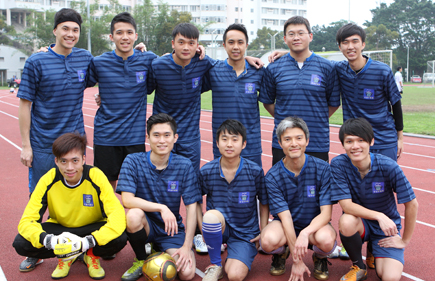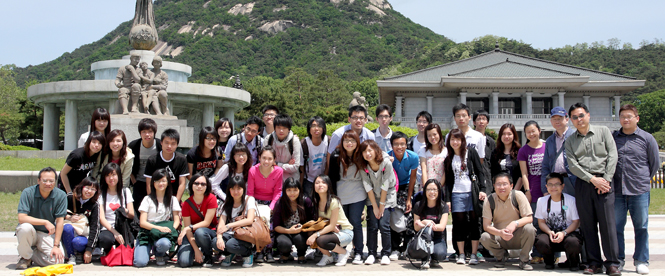Teaching Philosophy
Being a graduate of CUHK, I deeply realize the importance of the general education to a student in a University. I joined and started teaching a UGEB course by coincidence. My experience always reminds me that a GE course can be highly influential, especially when it involves the daily issues happening around us. Being a food scientist, I would like to share scientific knowledge and up-to-date information of food safety and processing with the student through my GE course. With enhancement of background knowledge, I hope students will find it easier to understand the public concerns about food and develop a logical mindset to analyze the related information with scientific discipline. In this way, they can take better care of themselves and their families on food consumption and personal health.
GE courses are basically designed for non-major students. With appropriate selection and adjustment of teaching contents, I believe that the layman background of the students is never a problem for the teacher. However, students' lack of confidence in learning could pose a great challenge to the teacher. Additional incentives are indispensable to facilitate the teaching process and encourage student learning. Similar to many science teachers, I would like to use everyday objects and scenarios to introduce various science principles and food safety concepts. Undoubtedly, it is an effective way to deliver new knowledge to students. Connecting science to everyday life not only inspires the students but also intensifies their interests and self-motivation in learning through studying the issues they are concerned about. To make learning fun is another effective approach to increase student engagement. The idea of fun learning can be somewhat hard to grasp, but yet we know that learning could be fun, or at least, it should be.

In these years, the COVID pandemic brings a lot of changes and challenges to the world. Education work is also affected and corresponding alterations are inevitable. To think positively, this provides a golden opportunity for online education development. The pandemic has posed a great challenge not only to the teaching process, but also to the student learning activity. For instance, the effectiveness of some conventional learning activities like group project may be weakened as students would encounter difficulties in communicating and working together. Nevertheless, other new learning activities can be developed in different e-learning platforms, such as CUHK-Blackboard, which provides a convenient medium to conduct interactive learning activities via the internet. Encouraging student learning through the redesigned assessment activities was the main adaptation I tried in this period.

Like other courses, a diversified assessment scheme is used in my course to evaluate different learning outcomes. Enrichment of subject knowledge is the basic element to evaluate students' learning achievement. Anyway, as people can obtain factual information easily in the internet era, the traditional type of examination emphasizing memory or recall of facts may not be the best way to evaluate the knowledge of students in this generation. In the transition to online teaching, the traditional examination has been replaced by a number of short after-class online quizzes on the Blackboard. Some merits of this change could be observed from the positive feedback received from the students:
Students are not required to memorize tons of subject knowledge at once. It relieves them of the pressures on learning, especially in the trying moment of pandemic and changes. It also increases the learning confidence of some students without any science backgrounds.
The questions can help to recall the main points of each lesson. With well-thought-out questions, the after-class quiz not only tests student understandings but also helps recap some key information of each lesson.
Learning from the wrong answers. The Online quiz system allows teachers to provide the correct answer and interactive feedback to students after they finish the quiz each time. This is important for students to clear their misunderstandings and to learn from mistakes.
More flexibility for students in learning. Students can do the quiz within the set period of time after the lesson. They can prepare for the quiz according to their own schedule.
Short playful quiz increases student engagement. Different types of questions, scoring schemes and settings can be selected in the online quiz system. They can be used to adjust the difficulty of the quiz somehow. Some students revealed that they find it interesting and challenging when doing the quiz after each lesson.

Analytical ability is another important element to evaluate in my assessment scheme. Besides the essay type assignment, some novel assessment activities are also used to further provide students with opportunities to demonstrate their creativity and application of the newly acquired knowledge. Thanks to my colleagues, Dr. CM Chow and Dr. HK Ngai, who have constructed a visual narrative website for the students, students from different UGEB courses offered by SLS can express their opinions and exchange their views on the specified issues related to human livings and life sciences. Furthermore, because Meme is one of the most prevalent internet-products on social media, I encourage students to create and submit a course-related Meme to get extra bonus credits. Gratefully, students have incredible responses to this learning activity. Some students are able to reflect on their deep-thinking and brilliant ideas in their Meme creation, and that really impressed me a lot. Some students would even express their views for the course through the Meme, showing that this funny assignment not only helps to evaluate students' abilities but also provides a medium for the communication.
I believe that pedagogy should evolve over time. Advanced information technology provides us with a powerful means to develop a better teaching and learning environment which could be more appropriate for the new generation of students. I realize that numerous trials and compromises are required in the transformation process. I am very pleased to keep on learning and trying new approaches to help students achieve their learning goals.
|


